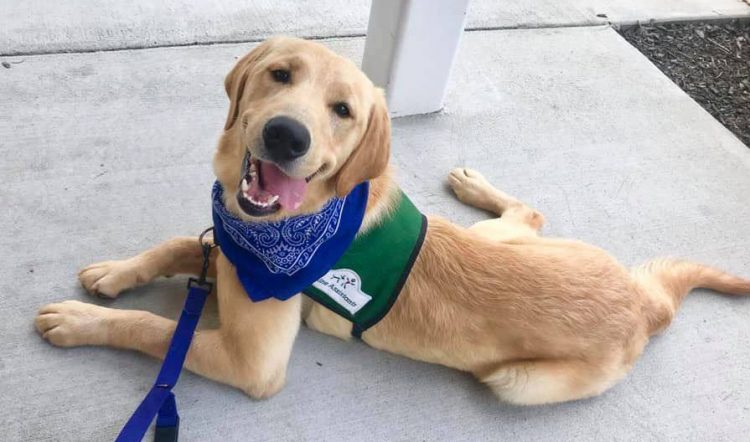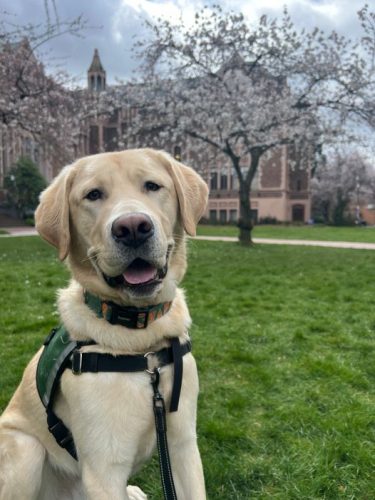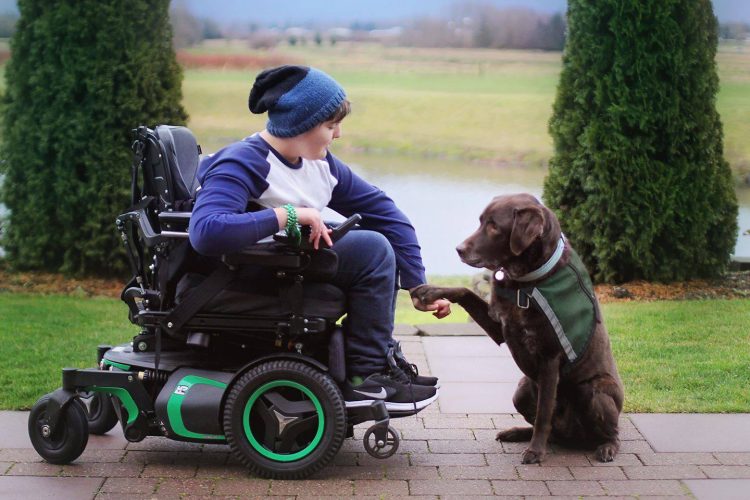July 26, 2023
Celebrate your canine friends this National Dog Month

Dogs enrich our lives in so many ways. This August, recognize the awesomeness of dogs for National Dog Month.
Founded by Milk-Bone brand in 2020, National Dog Month is an opportunity to celebrate all the ways dogs make our lives better. And although October is National Adopt a Dog month, anytime is a good time to adopt if you are looking for a new best friend!
Research demonstrates that living with dogs makes us happier, less stressed and more optimistic. Dogs and other companions animals can help lower blood pressure, ease anxiety and provide social support.
Ways to recognize national dog month
- Donate to your local shelter or to a larger dog nonprofit through payroll deduction or a one-time gift with the UWCFD.
- Make your next veterinarian appointment to ensure your pet stays healthy and strong.
- Volunteer! Nearly every local animal shelter and service provider has started accepting volunteers again. Walk and socialize dogs, organize donations, help out in the office, attend events – whatever engages your interests. Not only will the dogs appreciate the support, but so will their future human companions.
- Be sure to use #NationalDogMonth to post on social media.
- Feeding Pets of the Homeless provides relief to homeless people and their pets in the form of food, resources, emergency veterinary care and support.
- If you’d like to support or volunteer at a safe haven for pets of people experiencing relationship violence, search the Safe Havens Mapping Project.
During National Dog Month we also celebrate International Assistance Dog Week, beginning the first Sunday in August. Consider fostering an assistance dog in training.
Lending a paw
Assistance dogs help people with disability-related limitations live more independent lives. Dogs pick up dropped items, turn on and off lights, open doors, act as navigators, and even identify the onset of a medical condition, such as a seizure.
NOTE: Though they are trained to avoid distraction, it is important to respect service dogs while they work to enhance the life of and protect their person. Consider these best practices when around a service dog.
Nonprofit highlight: Summit Assistance Dogs

Queso is a service dog-in-training. Here, he poses in the UW Quad. Photo: Summit Assistance Dogs
Summit Assistance Dogs (charity code 0315210) creates life-changing partnerships by providing highly-skilled mobility service dogs for people living with disabilities in the Pacific Northwest.
Summit dogs assist with tasks such as retrieving items, opening and closing doors, and turning switches on and off. These companions can also help diminish depression, anxiety, and loneliness.
With a mobility service dog by their side, people living with a disability often feel empowered.
“Many of our clients have been able to maintain or get a job, attend college, live independently, travel, and so much more because of the support, independence, and companionship that a service dog provides,” said Nicole Bradley, Director of Philanthropy for Summit.
Dogs enrolled in the program spend their first eight months learning basic obedience, housebreaking, and socialization. Volunteer foster homes, which include puppy sitters and puppy raisers, are the backbone of the organization. Puppy sitters assist with providing a solid foundation for the puppies and adolescents to grow into valuable, life-changing service dogs for people living with disabilities.
After the puppy program, dogs begin more formal and advanced training. Many of the dogs are trained by inmates at the Monroe Correctional Complex, providing incarcerated people the opportunity to learn job skills, communication, and responsibility.
Once graduating, the assistance dogs are ready to be placed with their carefully paired client. Together they complete one final intensive two-week, on-site training program to prepare the pair for a long and successful partnership.

Taysen and Jackson / Summit Assistance Dogs
Summit events: Summit hosts several events throughout the year, including an annual luncheon and virtual yappy hours where attendees learn about service dog training, what life is like with a service dog, and more.
Sign-up for Summit’s newsletter to stay updated about upcoming events and Summit news!
Prospective clients: If you or someone you know might benefit from a mobility service dog, you can learn more about Summit Assistance Dogs’ client application process.
Putting our best paw forward
There are many organizations doing impact work by connecting service dogs with people. Consider supporting one of these CFD-member organizations through monthly payroll deduction or a one time gift:
Homeward Pet Adoption Center (charity code 0467007) is a non-profit, no-kill animal shelter. Our mission is to transform the lives of cats dogs in need through compassionate medical care, positive behavior training successful adoption while building a more humane community.
Seattle Humane (charity code 0314982): Founded in 1897, Seattle Humane Society is a private, nonprofit animal shelter. We serve people and animals with a variety of programs, including adoptions, dog training classes, a pet food bank for low-income seniors, and humane education for kids.
Humane Society Disaster Relief (charity code 0314983): Our Animal Rescue and Response team is prepared to answer the call for any large-scale emergencies, such as hurricanes, tornadoes, wildfires, earthquakes, utility outages and more.
Courthouse Dogs Foundation (charity code 1481524): Advocates for a more humane court system by including trained assistance dogs to provide comfort to vulnerable witnesses and others during stressful legal proceedings.
Guide Dogs of America (charity code 0315576): Guide Dogs of America is a nonprofit organization dedicated to providing professionally trained guide dogs, and instruction in their use, free of charge to blind individuals in the United States and Canada.
PAWS (charity code 0329960) is a champion for animals–rehabilitating injured and orphaned wildlife, sheltering and adopting homeless cats and dogs, and educating people to make a better world for animals and people.
Brigadoon Service Dogs (charity code 1478245): Specializes in training dogs to help children with developmental and physical disabilities as well adults. Engage at-risk teens to work with the dogs which help to build self-esteem, responsibility, and confidence in these youth.
Dogs for Better Lives (charity code 1478994): Professionally train dogs to help people and enhance lives while maintaining a lifelong commitment to all dogs rescued or bred and the people served. Our three assistance dog programs are: Hearing, Autism, and Program Assistance.